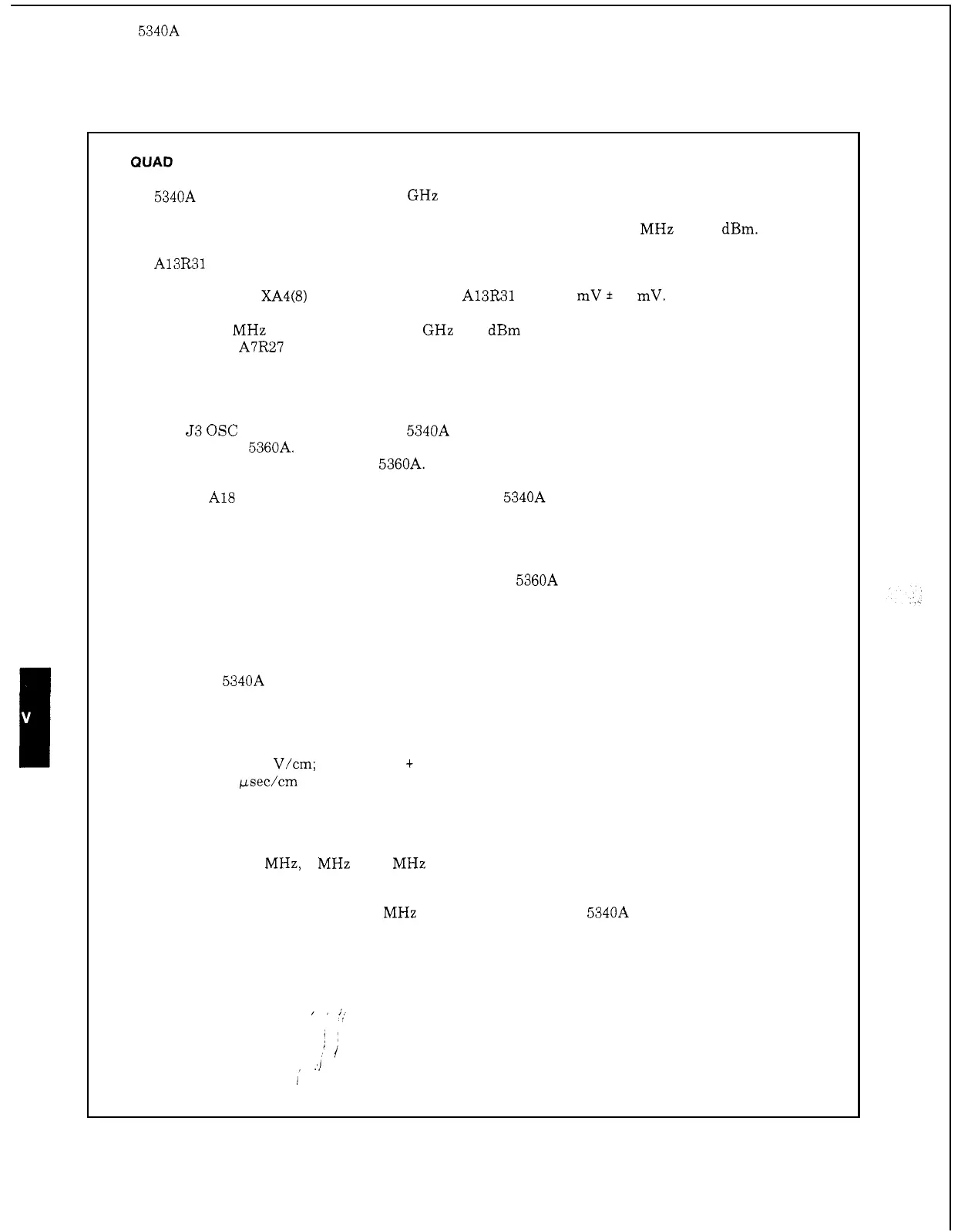Model 5340A
Maintenance and Service
Figure 5
-
2. Adjustment Procedures (Continued)
8.
QUAD DETECTOR ADJUSTMENT
a. Set 5340A RANGE switch to
10
Hz to
18
GHz and the RESOLUTION switch to
100
Hz.
b. Connect 608 Signal Generator to 50R Type N INPUT. Set generator to 280
MHz
at
-
20
dBm.
c. Set A13R31 fully counterclockwise.
d. Measure voltage
at
XA4(8) (QUAD DET) and set A13R31 for
-
450 mV
f
10
mV.
e. Disconnect 280 MHz signal and connect 20 GHz
at
0
dBm and observe
a
stable display. If the display
is
unstable, adjust A7R27 (GAIN) counterclockwise for
a
stable display. If
this
adjustment is made, it
is
necessary to readjust the input loop. Repeat step
7.
9.
OSCILLATOR ADJUSTMENT
-
STANDARD OSCILLATOR
a.
Connect
53
OSC
output, available on the 5340A rear panel to the input of
a
high resolution frequency
counter such
as
a
5360A. Connect
a
suitable external frequency standard (such
as
HP 5061 Cesium Beam)
to
the external oscillator input of the 5360A.
b. Remove the A18 05340
-
60036 Oscillator board from the 5340A and note the frequency marked on
the
label. Reinstall the board.
Remove the screw covering the frequency adjustment.
Use an insulated tuning tool to adjust the oscillator for
a
5360A display of the frequency noted in step b.
c.
d.
10.
OSCILLATOR ADJUSTMENT
-
OPTION
001
NOTE
The 5340A must have primary power applied for
at
least 24 hours to allow the
oscillator temperature to stabilize.
a.
Set
controls on oscilloscope
as
follows:
CHANNEL A 0.2
V/cm; DC coupled
+
up
SWEEP 0.05
psec/cm
TRIGGER; EXT,
+
slope, ACF
MODE
to NORM
DISPLAY to CHANNEL A
b. Connect
a
suitable
1
MHz, 5 MHz or
10
MHz frequency standard (such
as
an HP Cesium Beam) to the
EXT Input on oscilloscope.
c.
Connect Oscilloscope Channel A to
10
MHz output (53) available on 5340A rear panel.
d. Adjust oscillator FREQUENCY ADJ for minimum sideways movement of the oscillator signal.
5
-
10
